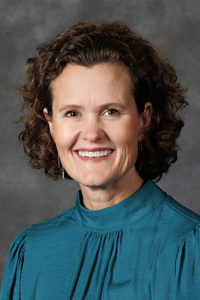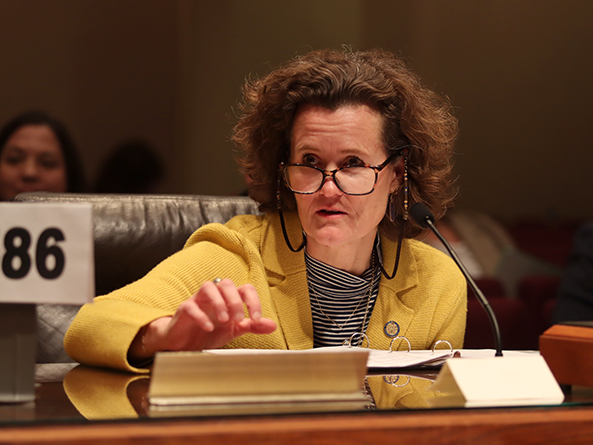Nursing workforce measure considered
A bill intended to alleviate a nursing workforce crisis in Nebraska was considered by the Health and Human Services Committee Feb. 22.

LB586, introduced by Seward Sen. Jana Hughes, would appropriate $3 million in general funds in fiscal year 2024-25 and $7 million in FY2025-26 to the Nebraska Center for Nursing to expand clinical training sites for nurses throughout the state.
Under the bill, The Nebraska Center for Nursing would be responsible for establishing a committee of experts to examine how best to utilize the funding, while giving preference to areas that have a lower number of registered nurses per capita compared to the state average.
Hughes said the funding provided in LB586 would help address the state’s nursing shortage by encouraging the development of clinical nurse faculty, expanding simulation training for clinical nursing education and incentivizing hospital facilities to support the Nebraska Center for Nursing in carrying out its goals.
“LB586 will ensure that even more nursing students have access to clinical education in Nebraska and can continue to receive high quality education to provide quality care to patients,” Hughes said.
Testifying in support of the bill was Nebraska Hospital Association president Jeremy Nordquist. Nursing deans and other education professionals across the state report that the biggest barrier to getting more students through their nursing programs is a lack of clinical faculty and clinical nursing sites, he said.
“The long-term solution to these problems is a continued investment in [the] workforce,” Nordquist said. “LB586 will jumpstart our workforce and it will benefit all of the programs in the state.”
Theresa Delahoyde, dean of undergraduate nursing at Bryan College of Health Sciences, also spoke in support of the bill. Nursing schools that would like to offer clinical education in rural Nebraska are impeded from doing so by a lack of clinical nursing faculty and rural housing options, she said, as well as the high cost of travel for students.
“Rural clinical opportunities create an exposure for students to learn about rural nursing and determine if it’s the right fit for them,” Delahoyde said.
She also noted that the funding provided under LB586 would provide additional nursing refresher courses for nurses who have been out of practice but desire to return to the profession. Increased accessibility for nurses who wish to return to practice would help expand the state’s nursing workforce, Delahoyde said.
Proponent Stacey Ocander, dean of health careers at Metropolitan Community College, noted the impact that simulation training could have on increasing diversity in the workforce.
“Our Native population, they cannot touch a deceased body once the spirit has left,” she said. “When we sit around and wonder why there [are few] Natives in medicine, it’s because we put up barriers to make sure it didn’t happen.”
No one testified in opposition to LB586 and the committee took no immediate action.


